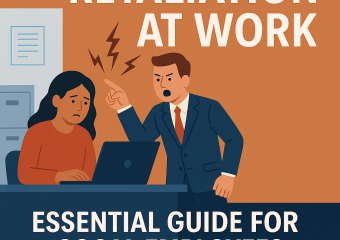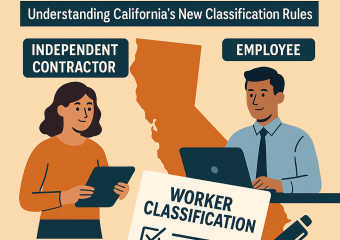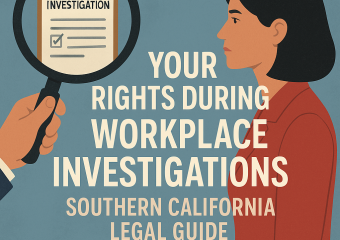Whistleblower Guide: Top Tips for Safe Reporting in CA
Speaking Up Safely: Understanding Your Rights as a California Whistleblower
Whistleblowing in California: What Does It Mean?
Whistleblowing is an act often surrounded by controversy but driven by valor. In the context of employment in California, it occurs when an employee exposes information or activities that are unlawful, unethical, or not correct within the organization that are either illegal or violate company policies. The decision to blow the whistle can be daunting due to potential retaliation from the employer. However, the state of California provides robust protections for whistleblowers to encourage them to step forward without fear of reprisal.
Understanding the Legal Protections
One of the fundamental aspects of whistleblowing protections in California involves the legal frameworks designed to shield employees. The California Whistleblower Protection Act is a pivotal statute; it protects public sector employees who report waste, fraud, abuse of authority, violation of law, or threat to public health without fear of reprisal. Moreover, similar protections are extended to private-sector employees under various state and federal laws, including the Occupational Safety and Health Administration (OSHA) guidelines and the Sarbanes-Oxley Act for those employed by publicly traded companies.
Importantly, California Labor Code sections 1102.5 and 6310 specifically prohibit employers from retaliating against employees who disclose information to a government or law enforcement agency where the employee has reasonable cause to believe that the information discloses a violation of state or federal statute, or non-compliance with local, state, or federal rules or regulations.
How to Report Wrongdoing Safely
If you find yourself in a situation where you need to report a wrongdoing, knowing the correct path can make a significant difference. It’s crucial to document everything meticulously. This documentation should include what was done, who was involved, dates, and times of the incidents, and any communications related to the wrongdoing. This information can be instrumental in any legal proceedings that might follow.
When reporting, you can choose to remain anonymous. California law allows anonymous reporting and ensures that whistleblower complaints remain confidential subject to certain exceptions. However, keep in mind that maintaining complete anonymity can sometimes complicate the process of investigation.
Employees can report wrongdoing to various entities, depending on the issue:
- Internal reports can often be made to designated officials or departments within the organization, such as compliance officers or human resources.
- External reports might be necessary if the issue involves severe misconduct or if internal reporting proves futile or risky. Entities such as the California State Auditor’s whistleblower hotline or OSHA can be appropriate avenues.
Preparation for Potential Retaliation
Despite strong legal protections, retaliation can occur. Preparation is key. Understand your company’s whistleblower policy if one exists. Knowing the proper channels and the process can provide clearer guidance and some level of security.
Should retaliation occur, it’s important to report it immediately. Under California law, you are protected against retaliation, and there are mechanisms in place to ensure you can report such incidents safely. Legal remedies can include reinstatement, compensation for lost wages, and other work-related benefits.
Seeking Legal Advice
Given the complexities involved in whistleblower cases, seeking legal counsel is highly advisable. Legal experts specialized in whistleblower laws can provide guidance, ensure the protection of your rights, and maximize the effectiveness of your claim. They can aid in navigating through the potentially turbulent waters of whistleblower claims, from confidential counselling to vigorous representation in court proceedings.
Conclusion
Being a whistleblower is not just about exposing wrongdoings but upholding integrity within the workplace. The state of California acknowledges the risk and moral dilemma that whistleblowers face and thus, extends comprehensive protections. If you ever find yourself in a whistleblower situation, remember your rights are there to safeguard not just your position but also serve the greater good by bringing unjust practices to light. It’s not just about being able to speak up—it’s about speaking up safely.




